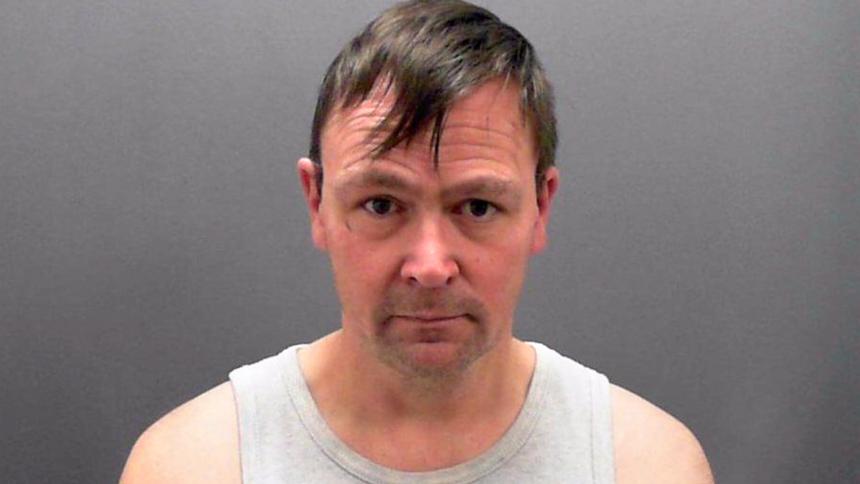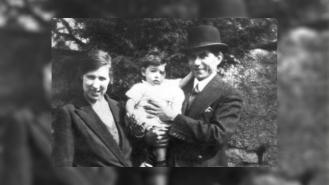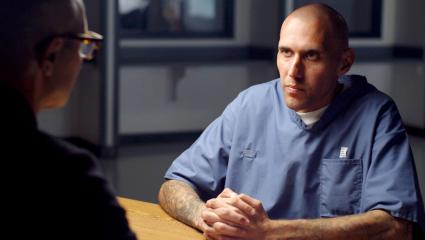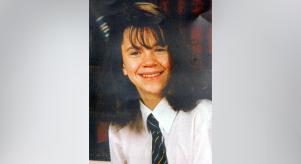
David Roustoby: How a killer neighbour nearly evaded justice
On 18th April 2007, 43-year-old David Clarke’s body was discovered face down in the River Foss near Towthorpe, North Yorkshire. But did he really drown? Was his death an accident, or was it murder? It would take 13 years for the truth to emerge, leading to the conviction of his neighbour, David Roustoby.
Although the victim’s death was ruled as drowning by police, a secret recording from Roustoby found years later would unravel what happened to the insulation surveyor.
Join us at Crime+Investigation, as we examine the victim, his killer neighbour and why it took over a decade to secure a conviction against his neighbour, David Roustoby. The case is also featured on the latest series of Killer Britain with Dermot Murnaghan, which is available now on Crime+Investigation.
What happened to David Clarke?
A cavity wall surveyor, North Yorkshire-based David Clarke was known by his peers for his love of chess and football. However, although he was a loving husband and a family man, throughout the years, David struggled with alcohol dependency and depression.
His previous depression and alcoholism are what led authorities to believe his death was accidental. After all, alcohol intoxication was noted as a contributing factor during the initial report.
After the 43-year-old’s body was found in April 2007, his family were left without answers after the inquest returned an open verdict. His wife, Angela Hunter, described her husband as a 'kind, caring, loving' man and a 'fantastic storyteller' who enjoyed spending time with elderly people.
Other members of the victim’s family never believed David’s death was accidental. So, what is the truth?
A confession recorded
Around 13 years later, a breakthrough occurred. Killer neighbour Roustoby was recorded on CCTV at a friend’s home confessing to David's murder.
The shocking audio revealed how Roustoby invited his neighbour over to his flat to 'ply him with alcohol' and diazepam. The suspect then went on to explain how he had strangled David with a tie before disposing of his body.
After the brutal and unprecedented attack, Roustoby and his ex-girlfriend drove David's body to the river site, where he was later discovered face down in the water by a dog walker.
Getting away with murder
Despite Roustoby being the last person to see David alive and having a history of violence, no charges were filed against him in 2007.
However, police later acknowledged potential shortcomings in the initial investigation. The 2007 postmortem revealed David was intoxicated and had diazepam in his system, a drug he reportedly avoided.
Additionally, the location where his body was found raised questions about how he could have reached that location on foot in his condition.
The trial and sentencing
In October 2020, Roustoby was finally convicted of David's murder at Leeds Crown Court and sentenced to life, serving at least 19 years.
The judge described the crime as 'cowardly and callous', highlighting Roustoby's manipulative and deceitful nature.
But it wasn’t just Roustoby who received a conviction. His then-girlfriend was sentenced to two years for assisting the offender in disposing of David's body. She also lied to the police to cover their tracks, stating her car was stolen.
The motive
Roustoby’s motive for killing David Clarke remains uncertain. It is believed there was personal animosity between the two, with Roustoby claiming that David had previously made advances towards his girlfriend.
Additionally, jealousy might have fuelled his actions; however, no official motive has been confirmed to this day.
Closure for David's family
The conviction brought some solace to David's family, who had endured years of uncertainty. A fresh inquest in 2025 overturned the original open verdict, officially recording David's death as an unlawful killing due to ligature strangulation.
The coroner expressed condolences to David's family, acknowledging their pain.
This case underscores the importance of thorough investigations and the impact that delayed justice can have on victims' families. It also highlights how new evidence, even years later, can hold perpetrators accountable and provide closure to those left behind.
Love true crime? Stay in the know with the Crime+Investigation Newsletter! Get exclusive access to new articles, episodes, clips, competitions, and more — delivered weekly and completely free. Don't miss out — sign up today!












